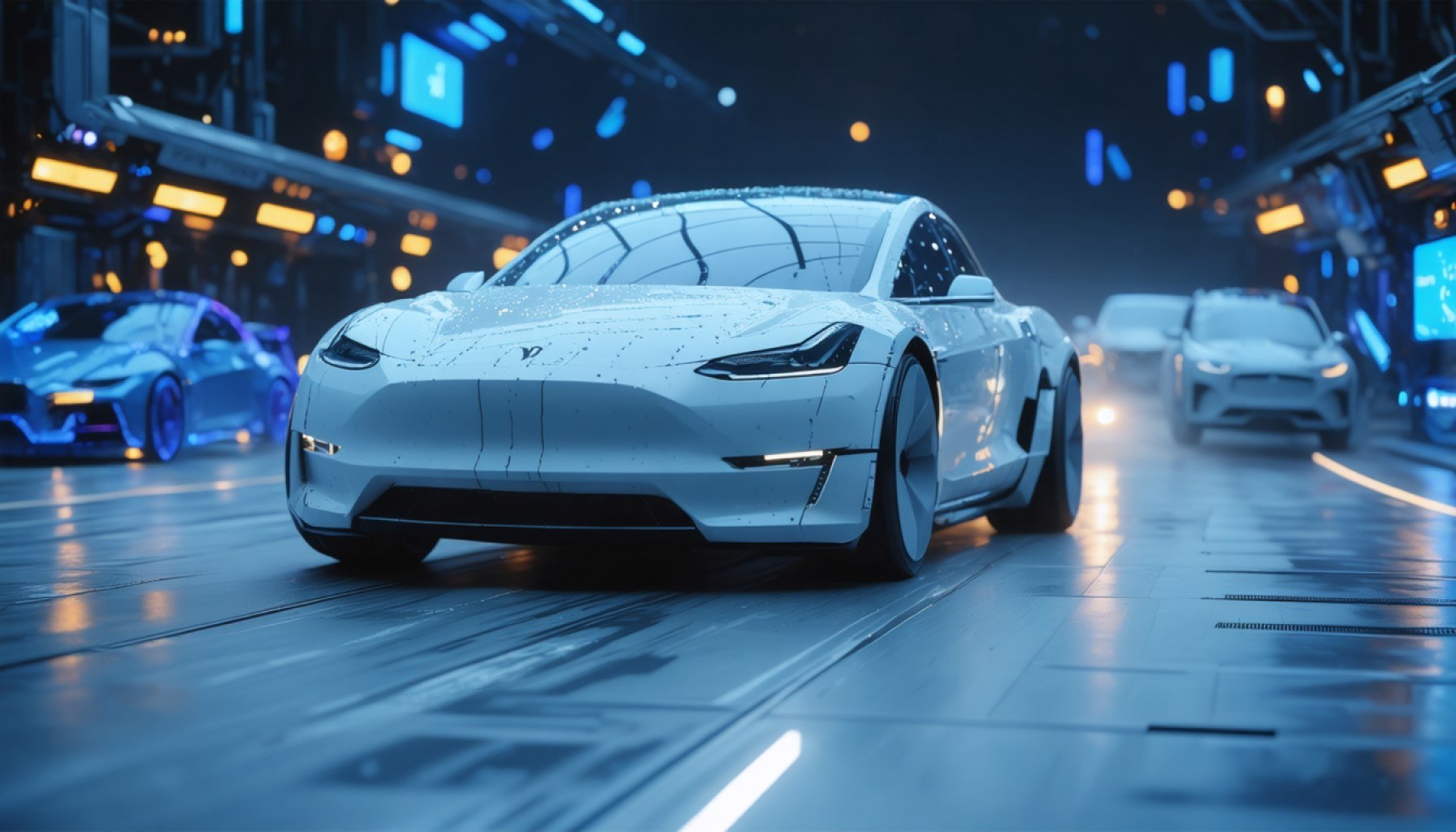- Elon Musk is the current wealthiest individual, with a net worth of $393.2 billion, yet his journey to trillionaire status remains uncertain due to Tesla’s market volatility.
- Experts, including Mark Cuban, predict the first trillionaire will emerge from the AI sector, driven by someone with innovative solutions to human-centered challenges.
- The AI industry’s value is expected to soar from $214.6 billion to $1,339.1 billion by 2030, significantly impacting global GDP and potentially increasing it by 7%.
- Nearly half of businesses are already implementing AI, indicating a major shift in economic structures and opportunities.
- AI’s growth is set to redefine expertise in the workforce, urging individuals to continuously learn and adapt to the evolving landscape.
Elon Musk reigns as the world’s wealthiest, wielding an eye-watering fortune of $393.2 billion. But in the elusive race to cross the trillion-dollar finish line, experts like Mark Cuban see a different protagonist emerging. They envision a pioneering mind, not yet spotlighted, harnessing the transformative potential of artificial intelligence.
Today, AI is a ubiquitous force, reshaping businesses, stirring economies, and dwarfing its original sci-fi allure. Valued at $214.6 billion, the AI industry is on a staggering growth trajectory, projected to catapult to $1,339.1 billion by 2030. With nearly half of businesses already embedding AI into their operations, the technology is poised to steer a new era of economic prosperity.
Enter dynamic change and opportunity: AI doesn’t just fortify existing structures; it creates them anew. In the coming years, AI’s imprint on the global GDP could expand by 7%, unlocking nearly $7 trillion. Imagine industries transformed and market leaders born from sheer innovative prowess.
Musk’s foray into AI, with ventures like Tesla’s self-driving tech and Neuralink, is undeniable—yet his ascent to trillionaire status isn’t set in stone. Tied to Tesla’s volatile stocks, his wealth mirrors the market’s unpredictable dance.
Mark Cuban sees potential trillionaire status belonging to an AI visionary, potentially even a philosopher, who decodes and solves human-centric conundrums with AI’s enigmatic power. This evolution won’t just shift wealth; it will redefine expertise in the workforce. Heeding Cuban’s warning, one must continuously learn and adapt or risk fossilizing.
In this captivating AI-tinted future, the promise of trillion-dollar fortunes beckons from uncharted territories, urging us all to explore, adapt, and innovate before the tide of transformation washes over.
The Next Trillionaire: How AI Visionaries Could Change the World Forever
How-To Steps & Life Hacks: Adapting to an AI-Driven Future
1. Continuous Learning: To thrive in an AI-dominated landscape, embrace lifelong learning. Platforms like Coursera and Udacity offer specialized AI courses to keep your skills sharp.
2. AI Tools for Business: Incorporate AI tools like chatbots or predictive analytics into operations to enhance efficiency and gain a competitive advantage. Companies like Salesforce have AI-powered solutions that streamline customer interactions.
3. Startup Strategies: For entrepreneurs, identify niches where AI can solve pressing problems. Whether it’s in healthcare, logistics, or customer service, precise AI applications can lead to groundbreaking startups.
Real-World Use Cases of AI
AI is transforming industries beyond imagination:
– Healthcare: AI algorithms enable early disease detection, such as using machine learning to identify cancerous cells.
– Finance: Banks utilize AI for risk assessment, fraud detection, and customer service automation.
– Retail: AI-driven recommendations enhance customer shopping experiences, as seen with Amazon’s predictive algorithms.
Market Forecasts & Industry Trends
The AI market, anticipated to grow to $1,339.1 billion by 2030, is being driven by:
– AI in Transportation: Autonomous vehicles are set to redefine logistics and commuting.
– AI in Manufacturing: Smart factories use AI for improving operational efficiency and reducing downtime.
According to a report from Grand View Research, AI’s integration into various sectors could contribute to a significant uplift in global productivity.
Features, Specs & Pricing
AI solutions differ vastly in specifications:
– Cloud-based AI: Amazon AWS and Microsoft Azure dominate this space, offering scalable AI services.
– Pricing: Costs range from pay-as-you-go models to tiered subscriptions, often based on data processing needs.
Security & Sustainability
– Security Concerns: As noted by Cybersecurity Ventures, AI systems are vulnerable to attack themselves. Implement strong data encryption and regular security audits.
– Sustainability: Innovations in AI consume energy. Embrace efficient servers and develop algorithms capable of operating on lower power.
Insights & Predictions
The future belongs to versatile thinkers who leverage AI for societal good. Mark Cuban predicts that the next trillionaire will solve global issues using AI—be it environmental, economic, or social.
Pros & Cons Overview
Pros:
– Enhanced productivity and efficiency.
– New industry solutions and innovations.
Cons:
– Job displacement and ethical concerns.
– High energy consumption of large-scale AI systems.
Actionable Recommendations
Quick Tips:
– Stay Updated: Regularly read AI news from reputable sites like Wired or TechCrunch.
– Experiment: Use AI tools like Google’s TensorFlow to experiment with AI projects.
– Network: Attend AI conferences and seminars to build industry connections and insights.
Adapting to AI’s reign requires continuous adaptation and proactive steps to embrace AI’s transformative potential. The time to innovate and lead is now, as the AI wave is only set to grow larger and more impactful.














